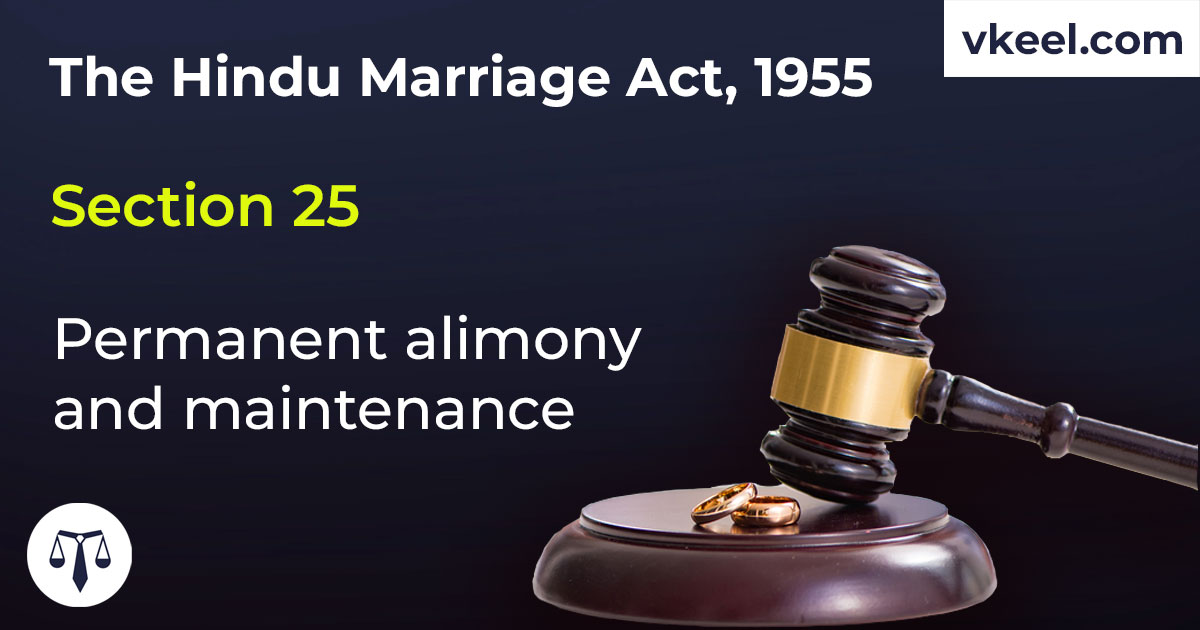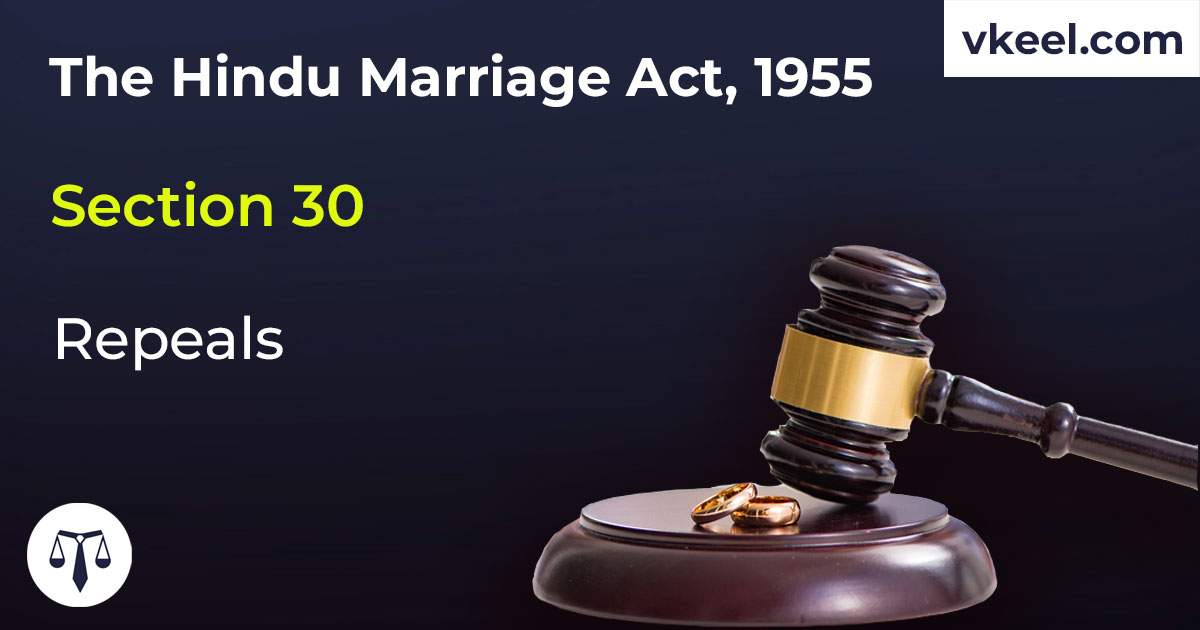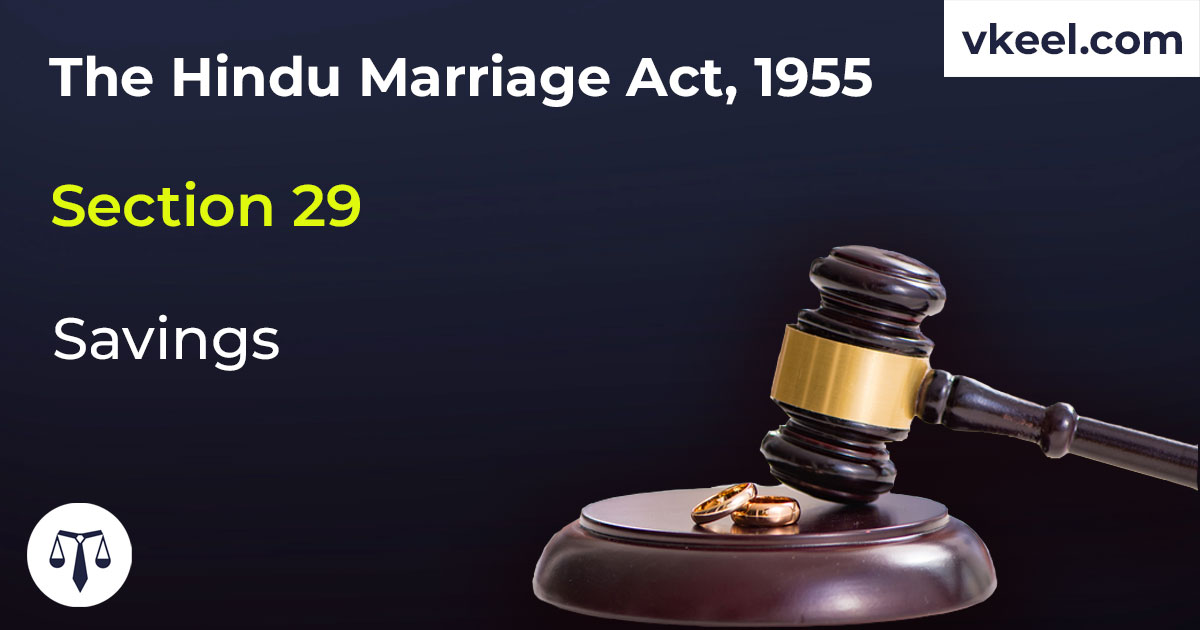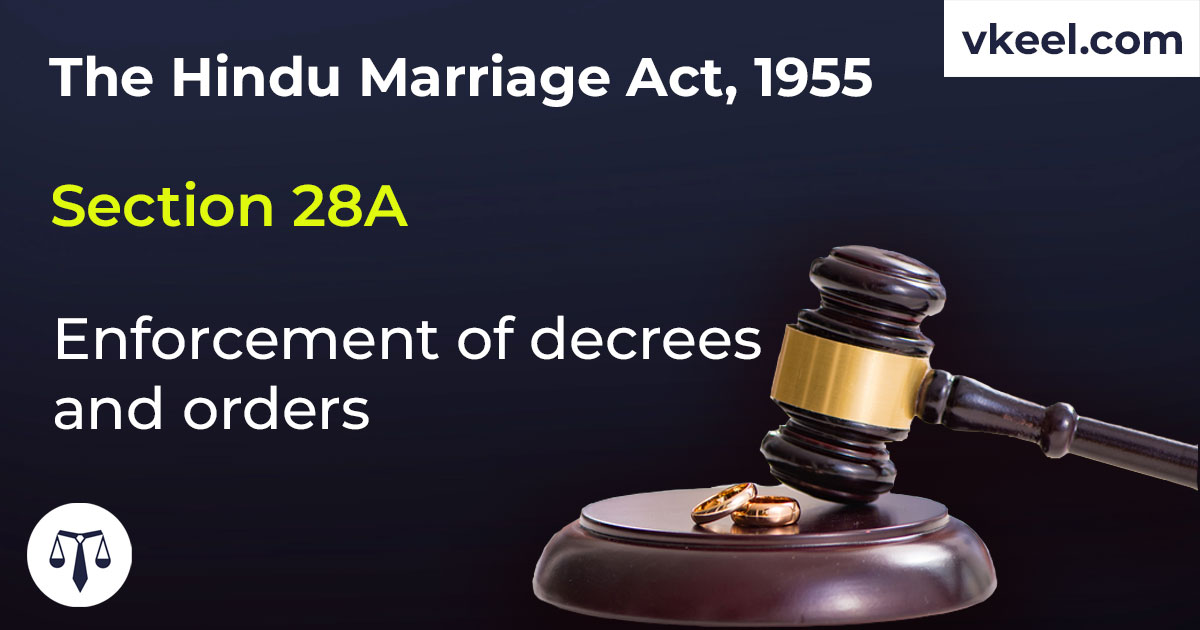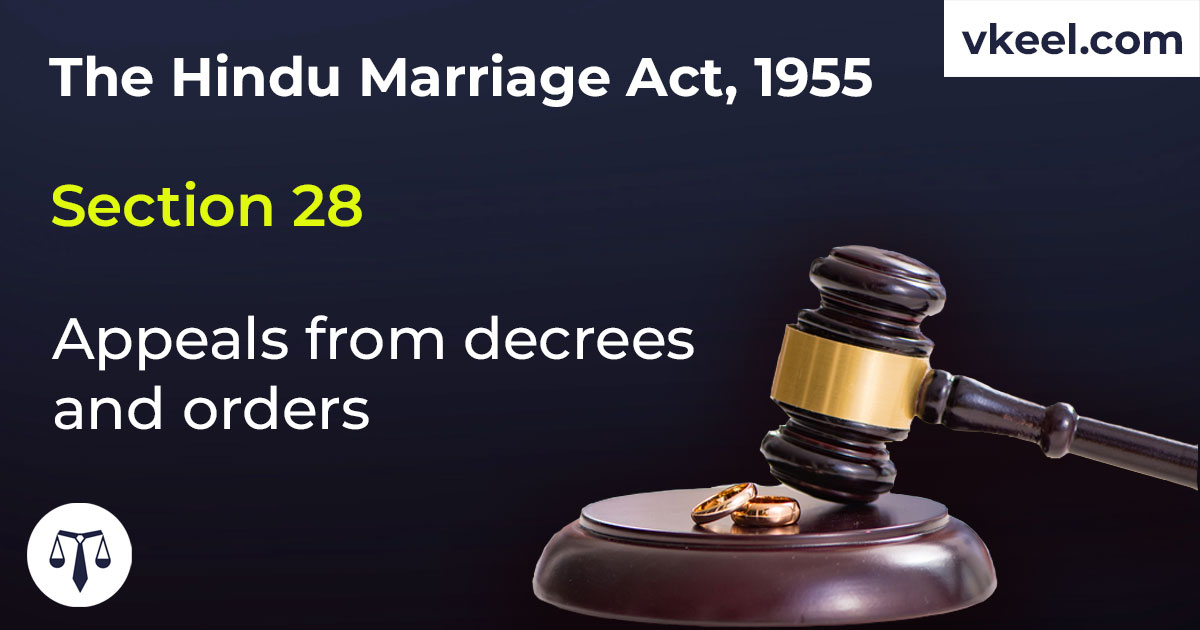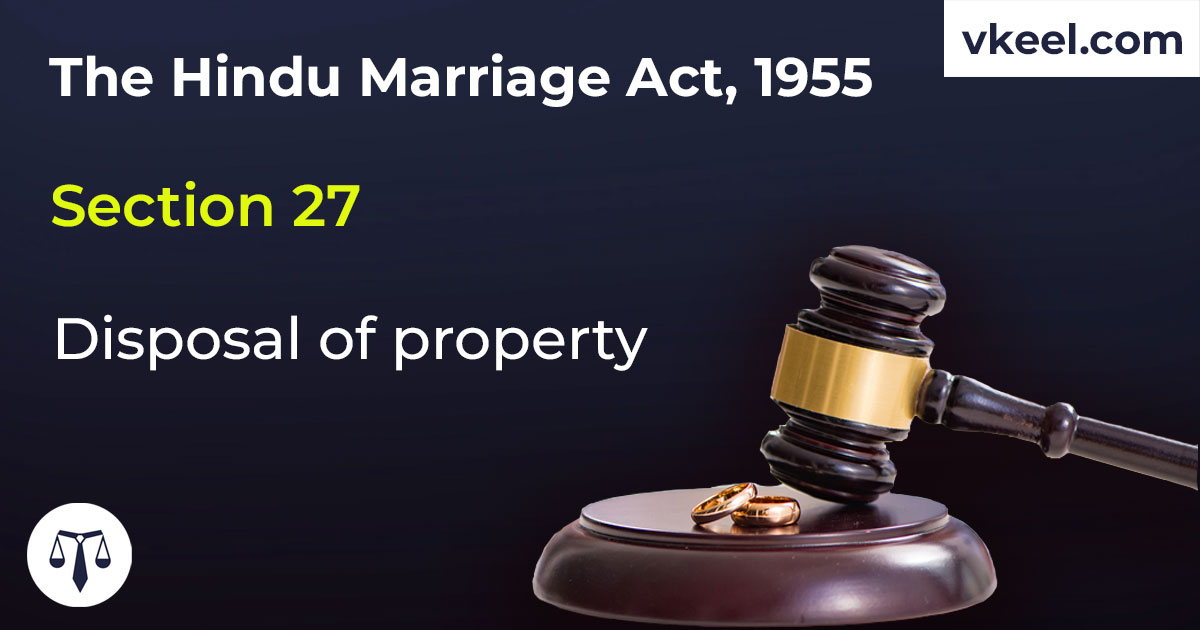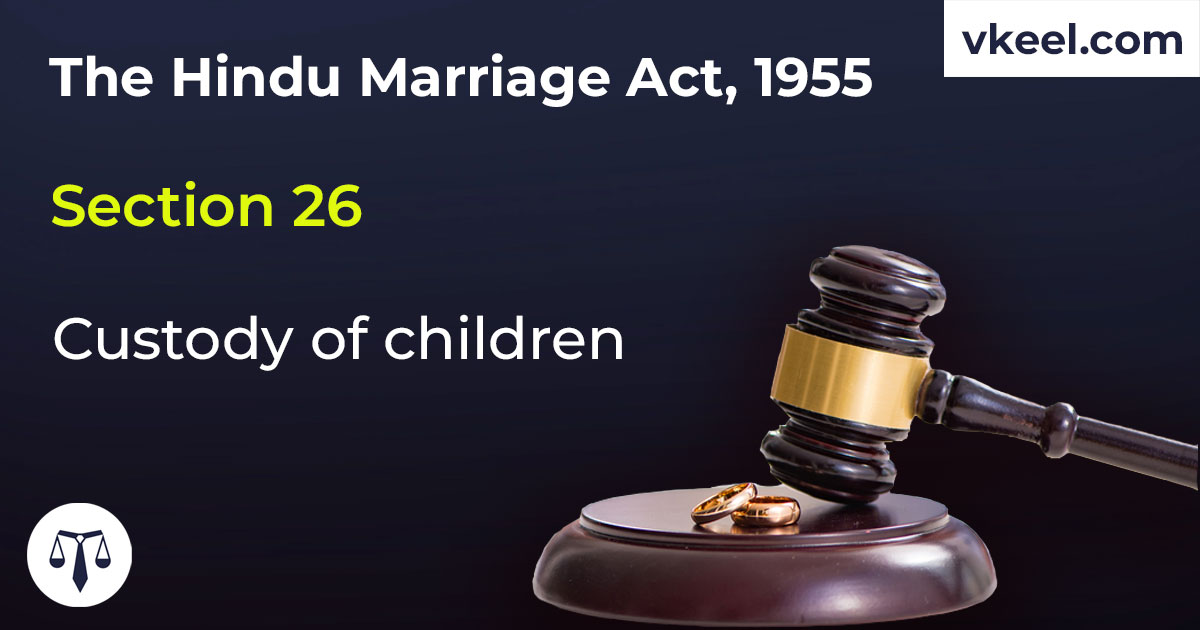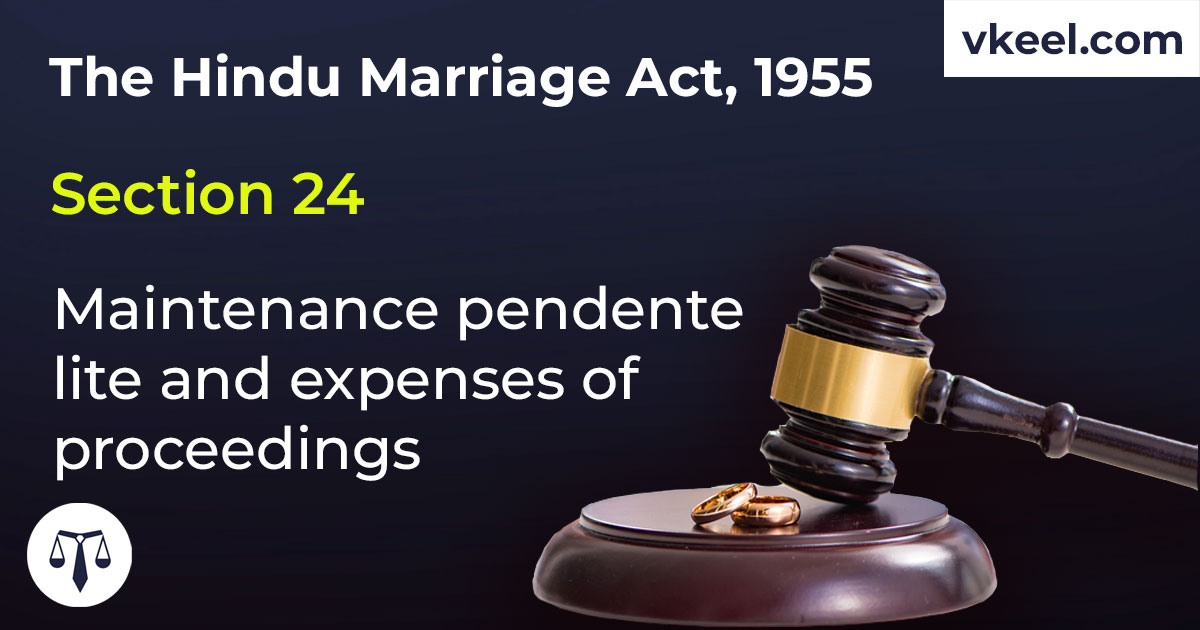Section 25 Hindu Marriage Act 1955 – Permanent alimony and maintenance
By Vkeel Team
Description
“Section 25 Hindu Marriage Act 1955”
(1) Any court exercising jurisdiction under this Act may, at the time of passing any decree or at any time subsequent thereto, on application made to it for the purpose by either the wife or the husband, as the case may be, order that the respondent shall 1*** pay to the applicant for her or his maintenance and support such gross sum or such monthly or periodical sum for a term not exceeding the life of the applicant as, having regard to the respondents own income and other property, if any,
the income and other property of the applicant 2[the conduct of the parties and other circumstances of the case], it may seem to the court to be just, and any such payment may be secured, if necessary, by a charge on the immovable property of the respondent.
(2) If the court is satisfied that there is a change in the circumstances of either party at any time after it has made an order under sub-section (1), it may, at the instance of either party, vary, modify or rescind any such order in such manner as the court may deem just.
(3) If the court is satisfied that the party in whose favour an order has been made under this section has re-married or, if such party is the wife, that she has not remained chaste, or, if such party is the husband, that he has had sexual intercourse with any woman outside wedlock, 3[it may at the instance of the other party vary, modify or rescind any such order in such manner as the court may deem just.]
Role of Section 25 Hindu Marriage Act 1955 in Determining Permanent Alimony and Maintenance
Section 25 Hindu Marriage Act 1955 is a crucial provision in determining permanent alimony and maintenance for a spouse. This section provides for the court to grant a spouse permanent alimony and maintenance in the event of a divorce. The court may also grant such an order in the event of a legal separation or annulment of marriage.
The court may grant permanent alimony and maintenance to a spouse if it is satisfied that the spouse is unable to maintain himself or herself adequately. The court may also consider the financial resources of the other spouse, the standard of living enjoyed by the couple during the marriage, and the age and health of the spouse seeking alimony.
The court may also consider the conduct of the parties during the marriage. If the court finds that the conduct of either party was such that it would be unfair to expect the other party to maintain the standard of living enjoyed during the marriage, then the court may grant permanent alimony and maintenance.
The court may also consider the contribution of each party to the marriage. If the court finds that one party has made a greater contribution to the marriage than the other, then the court may grant permanent alimony and maintenance to the party who has made the greater contribution.
The court may also consider the ability of the spouse seeking alimony to earn an income. If the court finds that the spouse is unable to earn an adequate income, then the court may grant permanent alimony and maintenance.
Finally, the court may consider any other factor that it deems relevant in determining permanent alimony and maintenance.
In conclusion, Section 25 Hindu Marriage Act 1955 is an important provision in determining permanent alimony and maintenance for a spouse. The court may consider a variety of factors in determining whether to grant permanent alimony and maintenance, including the financial resources of the other spouse, the standard of living enjoyed by the couple during the marriage, the age and health of the spouse seeking alimony, the conduct of the parties during the marriage, the contribution of each party to the marriage, and the ability of the spouse seeking alimony to earn an income.
1. The words while the applicant remains unmarried omitted by Act 68 of 1976, s. 18 (w.e.f. 27-5-1976).
2. Subs. by s. 18, ibid., for certain words. (w.e.f. 27-5-1976).
3. Subs. by s. 18, ibid., for it shall rescind the order (w.e.f. 27-5-1976).
Description Source: indiacode
Disclaimer:
The information provided in the article is for general informational purposes only, and is not intended to constitute legal advice or to be relied upon as a substitute for legal advice. Furthermore, any information contained in the article is not guaranteed to be current, complete or accurate. If you require legal advice or representation, you should contact an attorney or law firm directly. We are not responsible for any damages resulting from any reliance on the content of this website.

